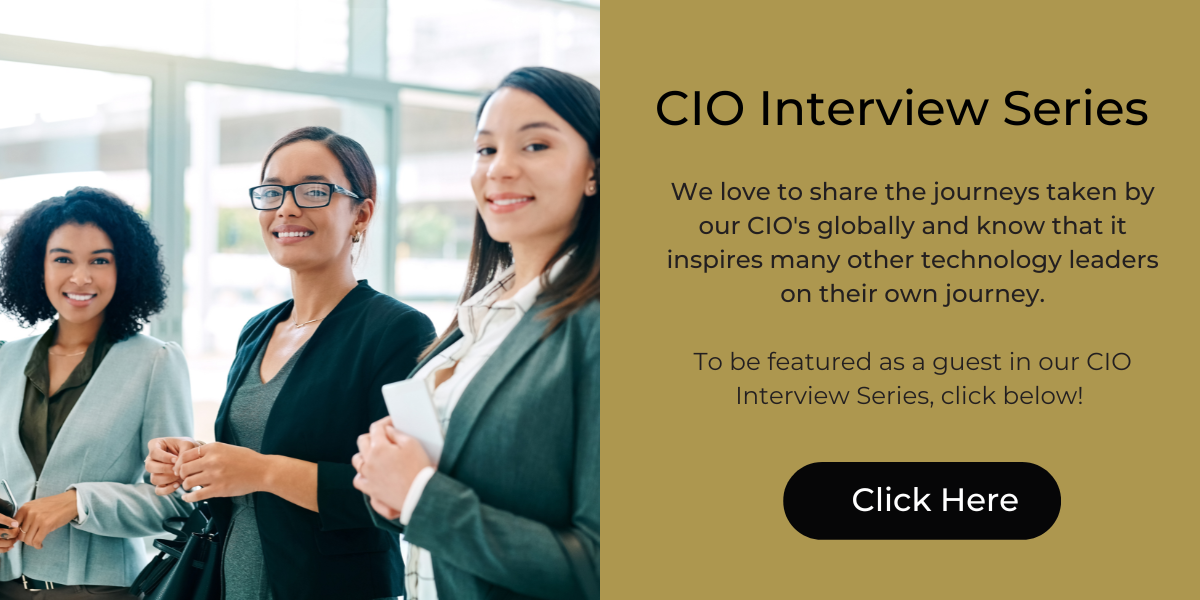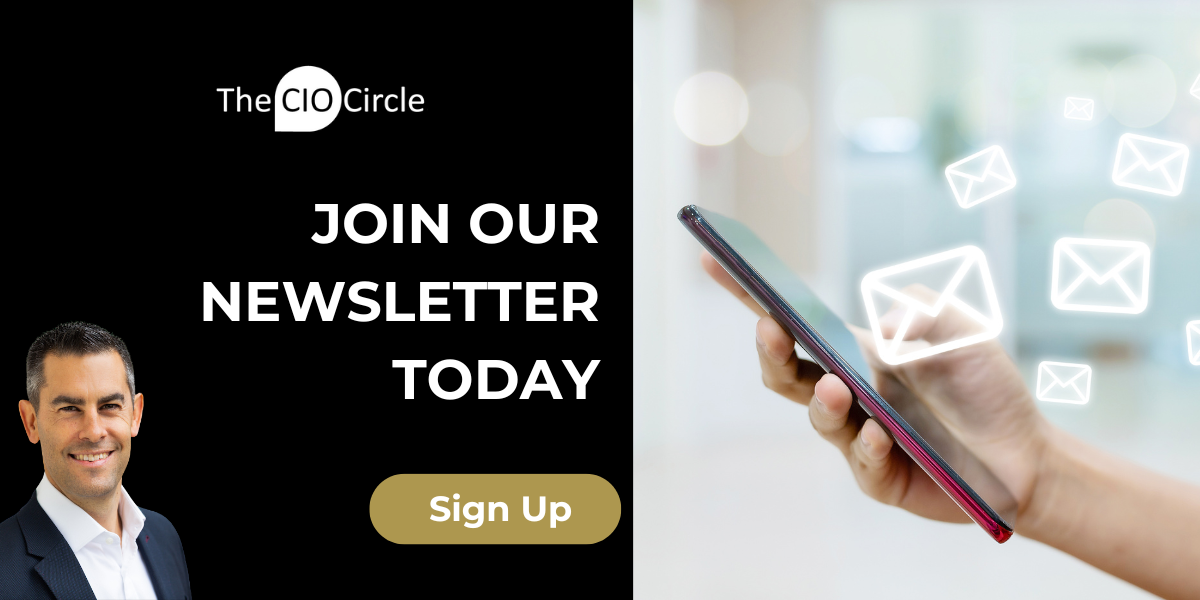WILL SANSON-MOSIER
CIO at San Francisco Police Department
Can you please provide a little introduction about yourself
I moved to the City and County of San Francisco in 2012 and began working for the San Francisco Police Department in 2013. Before relocating from Texas to Sacramento, CA in 2007, I lived in Austin, TX, and received my BA from the University of Mary-Hardin Baylor in 1993 and my MA from Texas State University in 1996.
As Chief Information Officer, I oversee the Technology Division which is responsible for developing and directing the technology vision, strategic roadmap, budgeting and purchasing, and large-scale projects and initiatives for the department.
I envision my leadership role at SFPD as directing initiatives that will continue to increase our department's transparency, create public value, and improve the well-being of community residents.
What has your journey to your position been like? What path have you taken?
I have decades of leadership and management experience spanning a myriad of states, government branches and workforce industries, including facilities and infrastructure, financial services, judicial services, child welfare services, health and human services, and public safety and law enforcement. However, nothing transformed me more than the pandemic of 2020.
The year 2020 embarked me on a new leadership journey, taking on the role of interim chief information officer on January 1st. I suddenly went from overseeing five people to almost fifty overnight. How would I inspire and encourage this new team to achieve their highest potential and contribution? Over the years, I performed as a martial arts black belt beating up on my emotional self. Am I good enough to lead? Prepared enough? Am I well-intentioned? A key learning for me from prior leadership training is remembering to respect me. Attention, affection, appreciation, and acceptance now hang on my office wall as a constant reminder for myself and others.
One of the first things I changed for the people of our division was to trust them more. The prior year, telecommuting was a newly implemented policy and was long overdue and highly desired by staff. For years, the department would not allow it and many team members lived long distances from San Francisco because of the cost of living, so commute times were extreme for the majority. When the telecommuting policy was implemented, only one day per week was permitted and it must be either a Friday or Monday. To me this did not make much sense. People have varying circumstances and unique needs, so why not let them choose a day best for their uniqueness? Well, I did. I advised the managers they could change their staff telecommuting plans for up to two days per week and they could be flexible to best meet the needs of our people and their families. I told the managers, we will establish concise expectations, hold people accountable, and if our productivity did not decline and we maintained our levels of service and support, it did not matter to me if someone was onsite or remote. Not surprisingly, our productivity increased and our responsiveness to services and support increased as well.
Trust and intention usually come naturally to me, I think this is an outcome from my parents and family instilling this in my foundational grounding. Leadership development learnings helped me identify some areas needing improvement, which are embracing change, either positive or negative, and always remembering the importance of interdependent connectivity. Challenges for me because I am an introvert personality. Then, just two-months later, our entire world was embracing systemic change: COVID-19.
As news of the coronavirus spread was building in January and February, I think my prior leadership development trainings helped me face the challenges about to be encountered. In early March, San Francisco identified its first COVID-19 case and I recall a very unsettling feeling within me, this virus was not just like the flu, but rather something serious. The evening of Sunday, March 8th, I emailed the managers and advised them starting on Monday, I was waiving the telecommuting policies and any staff who could perform their job functions remotely, should begin to work remotely and not come into the office or use public transportation. In my mind I wondered, will I get reprimanded by my command for this decision? I was willing to take that risk if it meant the health and safety of our people. I suppose I will never know if my decision made a substantial impact or not; however, I do know when our mayor, a week later, made the call to have the entire City and County of San Francisco shelter in place and invoked remote working, we were already ahead of the game.
April came and the shelter-in-place continued. No one could imagine at the time what effects would occur or predict how long this eternal work-from-home would last. I remember focusing on my leadership development learnings, embracing change. Communicate to the team to strengthen character and competence…continue to build their trust. They are human just like me, support them. I wrote emails about every two weeks expressing my deepest appreciation for their flexibility and responsiveness during this time. I recall my first email advising everyone not to worry about project schedules or timelines, focus first on the health and safety of their families. I am still truly amazed how productive everyone was and remains to this day!
After about eight months, the department advertised the permanent position to which I was interim and so I needed to decide my why. Would I apply for the permanent position, an exempt position (i.e., at-will employment) or revert to my prior position, a civil service position? I was reminded to live, to love, to learn and leave a legacy. Change comes within and I should not fear taking risks. My why is I care. I want to see this department improve.
Has it always been your vision to reach the position you’re at? Was your current role part of your vision to become a tech leader?
I always knew I was a leader. One of the key focus learnings from my past personal development is the understanding we are all leaders, in every role or job classification. It does not matter the position one holds; leaders exist at every level. My current role strengthened my compassion for my team, respect for my colleagues, and empathy for those who lead me.
Have you had a role model or mentor that has helped you on your journey? (If you feel comfortable, please share their name and how they helped you)
Mary L. Ault, who is an amazing person. A fine and good person. She mentored me on how to continually forge collaborative partnerships internally and externally among public, private, and non-profit stakeholders to successfully implement major projects.
How do you see the role of the technology leader evolving over the next 5 years?
Stronger focus on assertive interpersonal and collaboration skills to productively engage and influence others, foster strong relationships, navigate politics, negotiate, and manage conflicts. Most often people think technology is about the hardware or software procured and implemented. It is not. I can honestly say technology is about people. The people making the hardware and software operational and optimized. Another way to think of it, would one say a symphony is about the instruments? No! If no one is around to learn, to perfect, to play those instruments; the symphony would be silent...
What skills do you think leaders of the future will need in order to thrive?
Patience and flexibility. Leaders must continually improve and adapt with their own continued personal development and experiences. I think great leaders who build organizations and achieve organizational success are humble and ambitious; however, they are not afraid to show their vulnerability. They are committed to the organization, its mission, and values. Humble leaders are ambitious for the people and the organizations they serve, not themselves. Demonstrating vulnerability as a leader creates connection and promotes trust. I think people are more likely to follow you if they connect with you.How do you keep current with new skills, technologies and personal development?
Develop myself and others! Humility is a modest view of our own importance. Humility acknowledges that leaders are dependent on others to generate good ideas and different perspectives, as well as to achieve good results. Humility assumes that we, as leaders, do not have all the answers or know the one path forward.
My leadership style is a committed focus on growing myself and staff abilities through training and personal enrichment, which empowers us to continually explore innovations to exceed expectations. I strive to lead by example, always listen, mentor staff, ensure constant communication and establish high-performance goals. As a leader, I strive to make staff empowered and responsible for their functional activity and accountable for performance. Staff must have mutual accountability and a clear understanding of members' responsibilities to the team and their individual obligations.
I use open communication to focus on coaching instead of on directing and focus on immediately addressing issues openly and candidly. Staff must perceive a deep sense of purpose and commitment to other team members and the mission of the organization. I involve staff in developing strategies to advance goals in support of our mission. The key to high performance is always open lines of communication to provide motivation, maintain interest and promote cooperation.
What do you see as the next leap in technology that will impact your business or industry in particular?
Artificial intelligence (AI). AI will improve infrastructure, mobility, and communications to support law enforcement applications, increase officers' safety and sustain city-wide facilities.
"To live, to love, to learn and leave a legacy."
If you were mentoring a leader of the future, what advice or guidance would you give to help them on their way?
From my past leadership development learnings, I am reminded to live, to love, to learn and to leave a legacy. Change comes within and one should not fear taking risks. YOGASTHA KURU KARMANI (Establish yourself in the present moment and then perform the action).Is there anything in particular that you would still like to achieve in your career or what is the next step on your journey?
The infinite game of continuous improvement to influence oneself and others for betterment.
If you could change one thing in the world, what would it be?
While it is difficult to pinpoint one specific thing that I want to change in the world, there are several common issues that are often mentioned by people. Some of these include poverty, inequality, hunger, climate change, discrimination, violence, and access to education and healthcare. These are just a few examples, and people's opinions may vary based on their individual experiences and values. Ultimately, I think the desire to create a better world and address these pressing issues is a shared goal for many and is shared by me.
A big thank you to Will Sanson-Mosier from the San Francisco Police Department for sharing his journey to date.
If you would like to gain more perspective from Tech Leaders and CIOs you can read some of our other interviews here.
October 17, 2024


